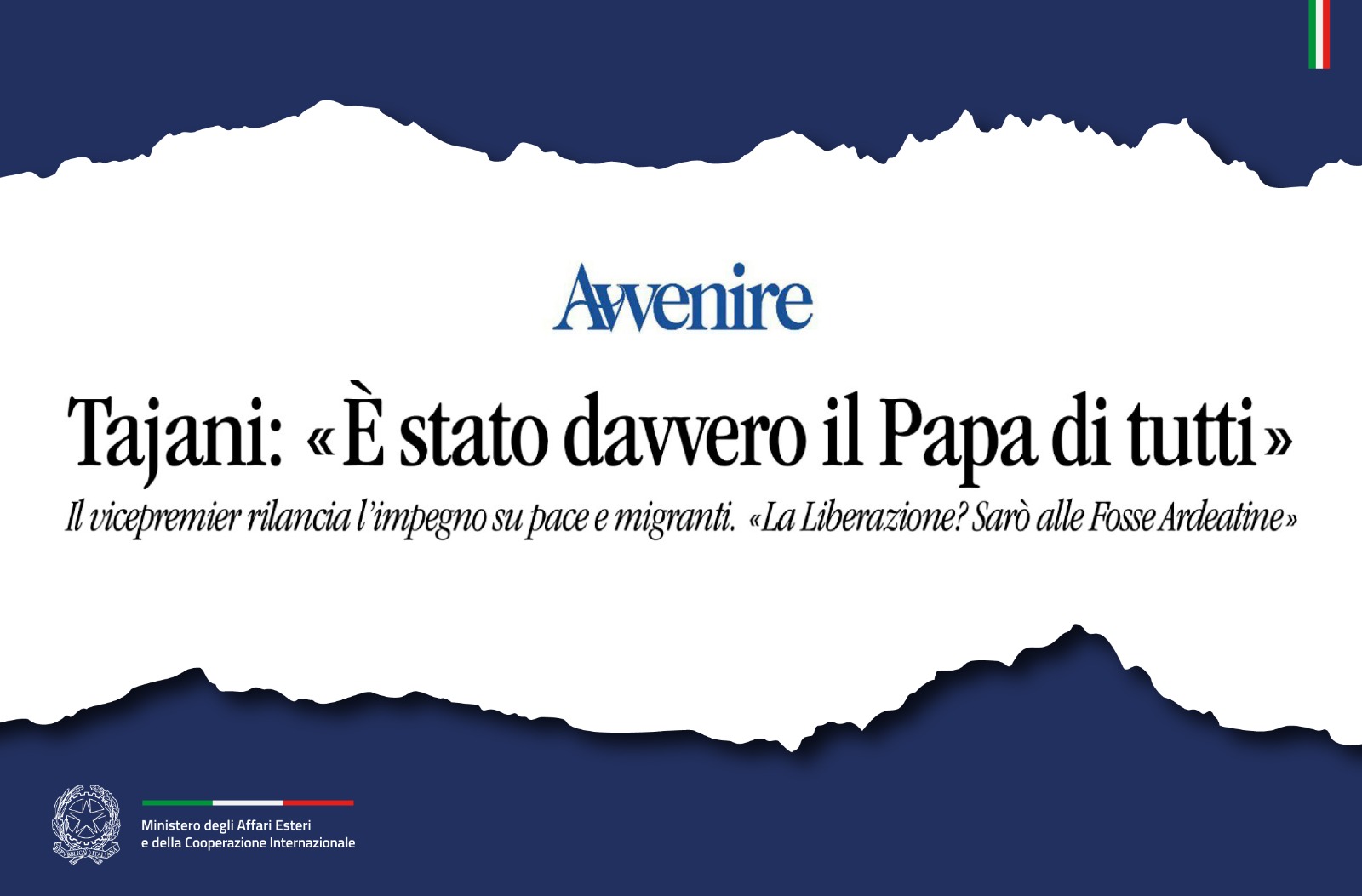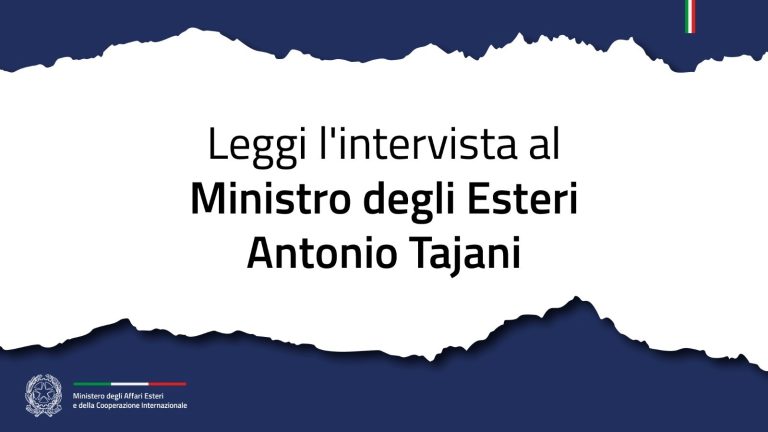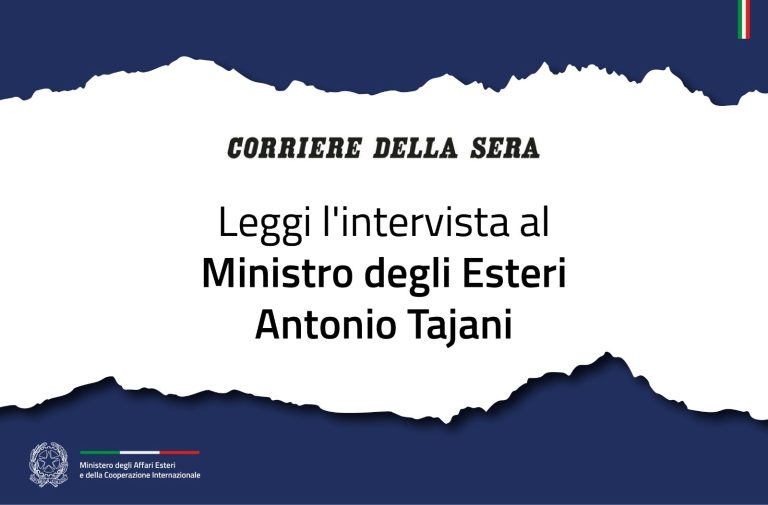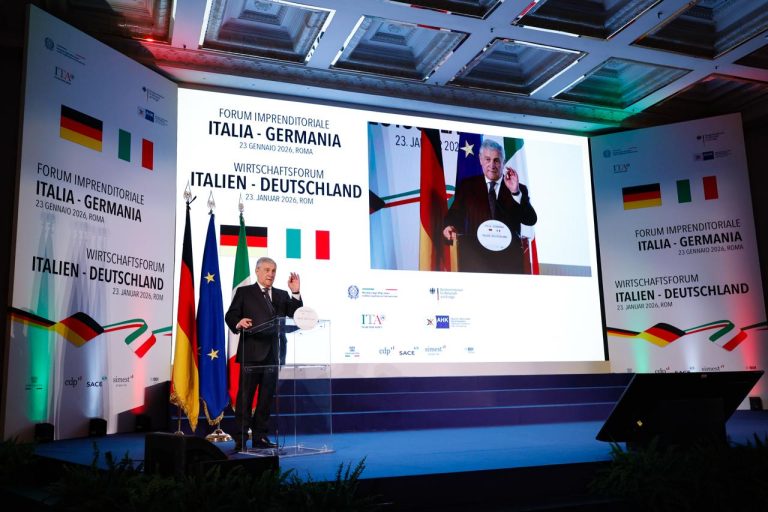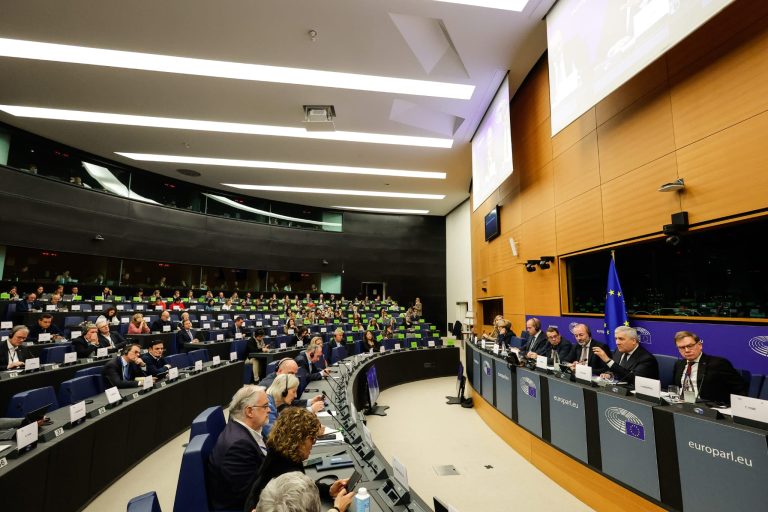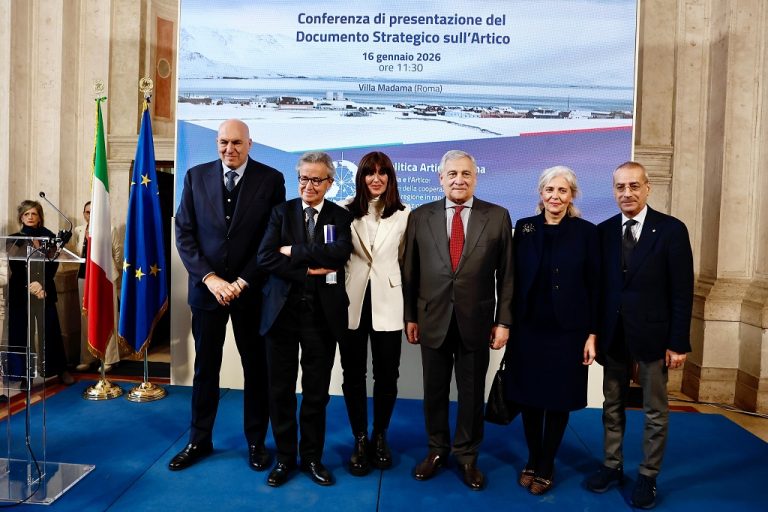“The Deputy Prime Minister reaffirms his commitment to peace and migrants. “On the Liberation Day? You’ll find me at the Ardeatine Caves.”
Rome – “The Pope belongs to everyone. It was a mistake, an even greater mistake at this moment, to label him politically.” Even before his role as foreign minister and secretary of Forza Italia, Antonio Tajani’s words reveal his personal affection, as a believer, for Peter’s successor, a man who dealt with politics by putting his whole self into it, his heart above all else. Peace and migrants are the thorniest issues, on which Tajani pledges renewed commitment, with specific initiatives, also to honour his memory. As for the controversy over the national mourning and 25 April, “I will go to the Ardeatine Caves (Fosse Ardeatine)”, he anticipates. No oblivion, then.
How do you remember him?
“I have many memories. But one stands out in particular, a meeting in 2017 with the community of San Vincenzo de’ Paoli: he was surprised to find a politician at Mass in a community committed to helping the marginalised and drug addicts. He was pleasantly surprised to see a politician working alongside the poor. At the time, I was President of the European Parliament and he had already met me in that capacity. In a speech in March 2023, he called for a politics “that listens to reality, to the poor”, and not one that is “closed off in government buildings”. This is his message to us in politics.”
One of the Pope’s famous expressions is that of a “world war in pieces”. But his Magisterium has also been taken “in pieces”, with everyone emphasising the aspects closest to their own political stance and neglecting other aspects.
“The Pope is the head of Christians, all Christians: he is not right-wing, centre or left-wing. He may have greater or lesser sympathy for this or that political figure. For example, he showed personal sympathy towards Giorgia Meloni. You cannot separate his teachings on morality from those related to the defence of the human dignity, dedicating himself to the poor, migrants, visiting prisons, as he did until his last days with his visit to Regia Coeli. Nor can his commitment to the environment be overlooked, without ever becoming ideological: a respect for man and nature, in a comprehensive vision, attentive to the rights of all, including the poor and gay people. A Pope lives by the message of the Gospel; he cannot be interpreted as a political leader. The Church is a universal concept.”
In this light, you often crossed paths with him on issues of peace.
“He had a comprehensive vision, attentive to all conflicts, even, and especially, the most forgotten ones. As President of the European Parliament, we dealt with him in particular on the war in Sudan. He was very attentive, as we know, to African conflicts, and we also know how much he did for Ukraine and the Middle East. In keeping with what has always been the teaching of the Church, I think of the image of Pius XII with his arms open during the bombing of San Lorenzo. I think of Paul VI’s speech at the United Nations, I think of the immense work of John Paul II. I see great continuity between the Popes, even between Benedict XVI and Francis. The faith is one, while there are those who have sought to divide the Christian people.”
But can more be done for peace, also to honour his memory?
“With the meetings on nuclear power between Iran and the US held in Rome, Italy has confirmed its role as a promoter of peace, which we now intend to continue as leading players.”
Can the funeral, attended by high-level delegations from all the major powers, symbolically relaunch Rome as a promoter of peace?
“Everything can help, even this loss, which coincides with Easter Monday and the celebration of the Resurrection, seems to want to confer on the Vicar of Christ a role as a peacemaker, which does not cease with his death.”
What warning does the Pope leave us about peace?
“A warning not to forget human suffering. We are the only country that, thanks in part to the work of religious figures such as Cardinal Pizzaballa and Don Aldo Bonaiuto of the Pope John XXIII Community, is able to bring relief to the tormented community of Gaza, as Pope Francis urged us to do. But he never failed to speak out about the plight of the Israeli hostages. It is also a warning to commit ourselves, as we are doing, to a worldwide moratorium on the death penalty. All this within a concept of secularism in our commitment, which is in turn Christian, because it does not neglect the dignity and rights of anyone.”
By entrusting Cardinal Zuppi with the task of mediating between Russia and Ukraine, the Pope has focused on Italy as a mediator for peace.
“This is a commitment that we must pursue. Alongside a stronger commitment, more generally, to international cooperation. I would like to recall that at the G7 we planned, for the first time, a session entirely dedicated to these issues.”
Then there is the issue of immigration, on which the Pope has often been ignored, and Forza Italia has always claimed its own proactive approach within the majority.
“Our proposals to grant Italian citizenship after a ten-year school course have been submitted to the Chamber of Deputies and the Senate. We have never withdrawn them.”
Finally, there is the controversy over the prolonged mourning that would ‘overshadow’ 25 April…
“I will simply say that on 25 April, I will be at the Ardeatine Caves to remember in particular Don Giuseppe Morosini, who was also my fellow countryman from Ferentino, and Colonel Giuseppe Cordero Lanza di Montezemolo, commander of the Clandestine Military Front.”

